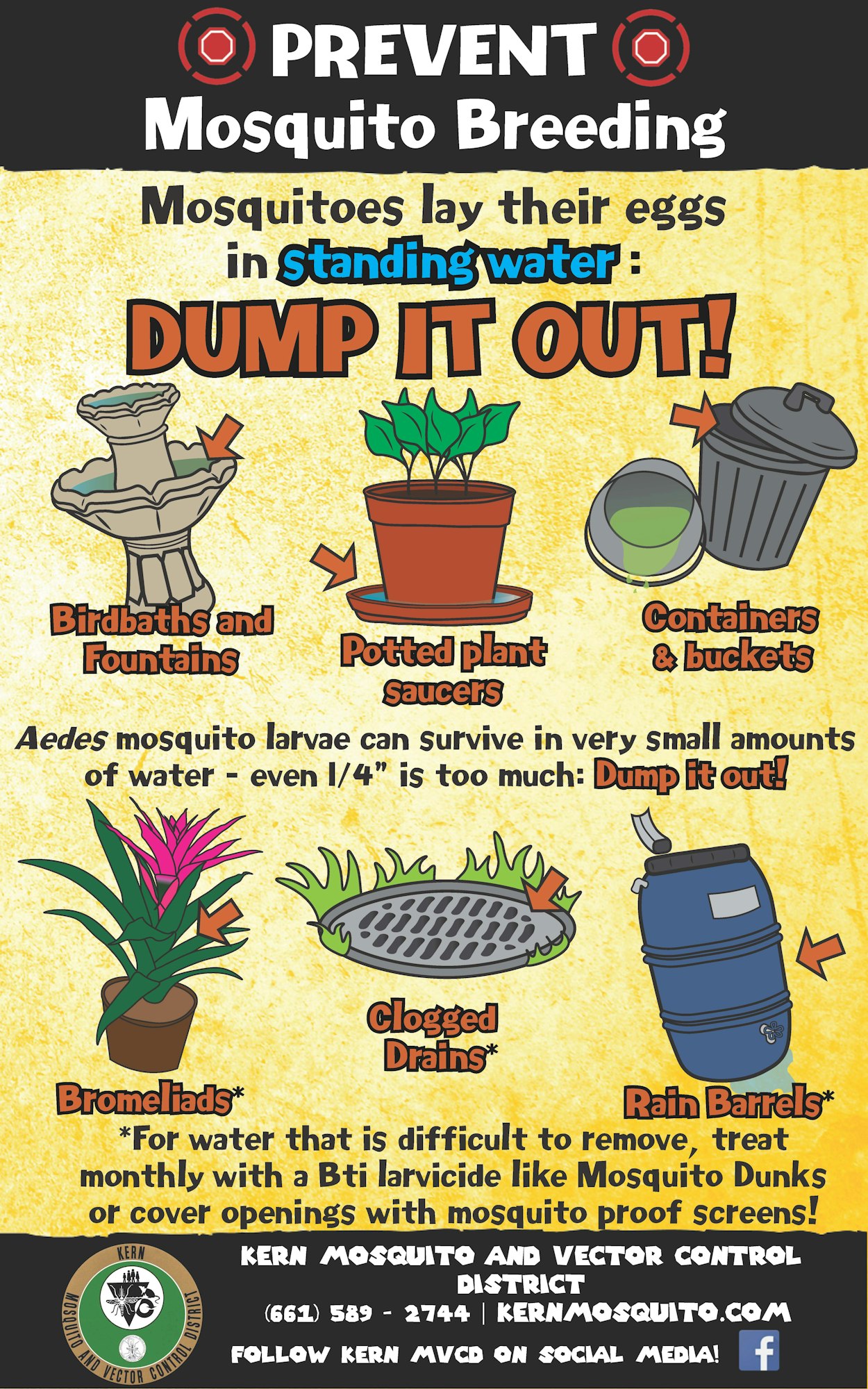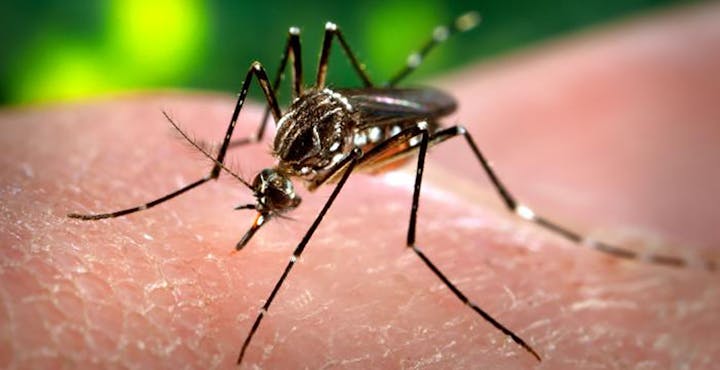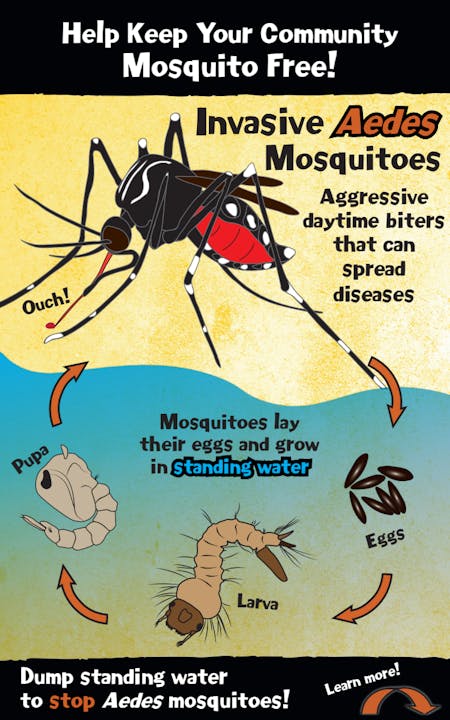Invasive Aedes Mosquito aka "ankle-biters"
One of the main reasons people have come to despise “ankle-biter” mosquitoes is because they are persistent biters (one female can bite multiple times) and their bites are extremely itchy, which some people have reported to be allergic to. There are additional reasons why this mosquito is a nightmare for residents as well as vector control districts such as us.
First, Ae. aegypti mosquitoes are active and bite during the daytime. For decades the central valley residents have lived alongside Culex mosquitoes that are active during a limited time period of dusk and dawn. Now, having to implement mosquito-prevention measures not just at dusk and dawn, but throughout the day has been frustrating.
Second, unlike Culex species that primarily feed on birds, Ae. aegypti mosquitoes prefer to feed on humans. Although this does not mean Culex mosquitoes don’t bite humans, because they do- when they cannot find their preferred hosts. And, they can transmit West Nile virus, St. Louis encephalitis virus, and Western equine encephalitis virus to animals and humans.
Third, Ae. aegypti mosquitoes are container breeders, so any little amount standing water in the tiniest of containers can potentially breed hundreds of these mosquitoes. A few of the main culprit sources in Kern county have been flower pot saucers, bird baths, abandoned kid toys, leaky irrigation valve boxes, and drains.
Fourth, Ae. aegypti eggs stick to the container surfaces and are desiccation resistant (meaning they do not dry out easily), so just dumping standing water is not adequate anymore- the containers and structures with standing water also need to be scrubbed regularly.
Prevent these pesky mosquitoes from breeding in your yard by dumping out any standing water on your property and screening your yard drains. The BEST method to reduce the number of adult mosquitoes is by eliminating the breeding sources.





.jpg?ixlib=rb-1.1.0&or=0&w=720&h=720&fit=max&auto=format%2Ccompress&s=5d1ce3465f0210a424236a3466233a88)

